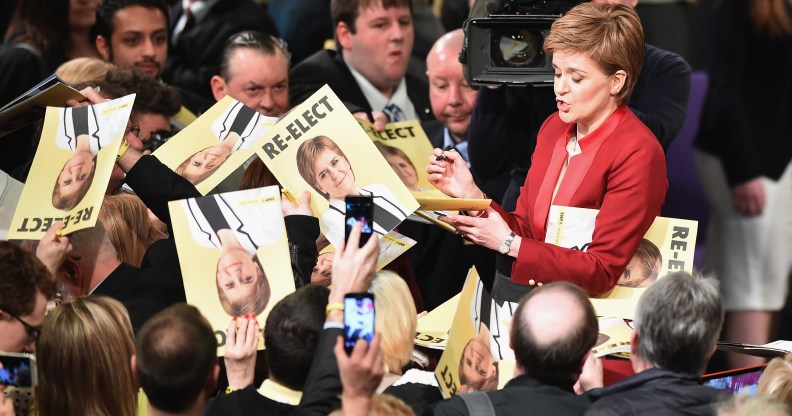SNP manifesto pledges support for creation of LGBT rights envoy

The Scottish National Party has pledged support for the creation of an LGBT rights envoy in their manifesto.
The SNP launched its manifesto today – the last day on which voters can register to vote ahead of the election on May 7.
Party leader Nicola Sturgeon – who recently called on Labour’s Ed Miliband to work with the party to deny another Conservative-led coalition government – unveiled the document.
In its manifesto, the SNP pledged: “SNP MPs will also make the case for the establishment of a special envoy – a diplomatic post within the Foreign Office – to promote the rights of LGBTI people throughout the word [sic], as an integral part of UK foreign policy.”
Despite presumed months of planning, the manifesto misspelt “world” as “word” in the pledge.

US President Barack Obama and Secretary of State John Kerry appointed diplomat Randy Berry to the newly-created post of LGBT rights envoy earlier this year – to lobby for LGBT rights on behalf of the US around the world.
The Labour Party has pledged to create a similar role in the UK for gay rights activist Lord Cashman – but the Conservatives remain opposed, claiming it is “more effective” to promote LGBT rights through existing channels.
The party also hinted at further laws to protect LGBT people, pledging: “We will seek to maintain the protections provided by the Equality Act 2010 and will ask the government to engage with key stakeholders on potential improvements. We will also support calls to establish a Race Committee to advise the work of the Equality and Human Rights Commission”.
However, the manifesto did not mention some of the LGBT issues raised by the main UK parties, such as statutory sex and relationship education in schools. Though education is a devolved matter in Scotland, the manifesto did specify other education policies.
It also did not mention a stance on proposals to pardon men convicted of historic sex offences – backed by the Conservatives, Labour and the Liberal Democrats.

